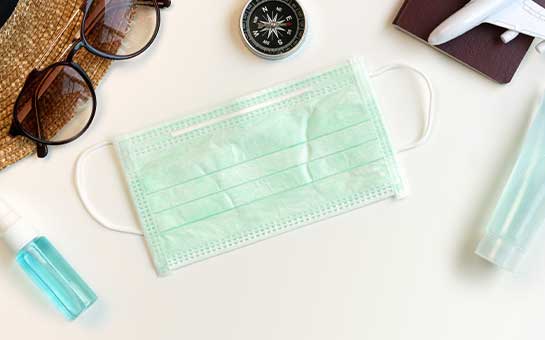Your vacation is almost here, and you are packed and ready to go! You’ve researched the best destinations, places to eat, and things to do. You’ve booked accommodations and purchased your plane tickets. However, one of the worst things that can happen when traveling is an unforeseen injury or illness. It's important to know how to avoid getting sick while traveling, and to reduce your chances of getting hurt. There are things you can do to help prevent becoming ill or injured—as well as things to know if it happens anyway, so that you can be as prepared as possible with these travel health tips.
Before the Trip
Check the average temperature and seasonal weather at your destination, and be sure to pack accordingly. Be sure to bring any medications that you take either on a regular basis or as needed (for example, allergy medication). You never know how your body will react to a new environment; allergies can make you miserable and even lead to further complications like a sinus infection. Check to be sure you're up to date on any and all vaccines that your destination country requires.
During Your Flight or in Transit
When you’re traveling by plane, train, or any other form of public transportation, you have an increased risk of coming into contact with sick people or picking up airborne illnesses.
Be sure to carry hand sanitizer with you that you can use after touching doors, railings, and other common contact places. People also sometimes wear masks to prevent inhaling airborne germs when they travel through an airport terminal, bus station, or any place where large groups of travelers congregate.
During Your Trip
The most common sickness during travel (besides airborne illness) is stomach illness caused by contaminated water or undercooked food. You might want to opt for bottled water if it is available, and be aware of how the food you are eating is prepared. Also, be sure to wear mosquito repellent to avoid contacting malaria, dengue fever, and other diseases from foreign countries.
If you are doing any type of physical activity when traveling, be sure you know all the appropriate safety rules and procedures. If you are going to go hiking, you will need to wear proper shoes. If you are doing anything on the water, wear a life jacket. Be sure to follow the basic safety prevention rules and regulations. Make sure you stay hydrated and are able to access help if you need it. You might also want to investigate hazardous sports travel insurance to be sure your activity of choice is eligible for coverage.
Travel Medical Insurance
When traveling, it is always advisable to obtain travel medical insurance. This type of coverage can provide medical care when unforeseen accidents and injuries occur, and it will protect you from high out-of-pocket medical expenses.
Travel insurance is also available and can provide some medical coverage benefits along with coverage for trip cancellation, trip delays, lost luggage, and other non-refundable trip expenses. If you were to run into issues during travel or find yourself unable to travel at all (say, due to someone falling ill before your trip), these plans could protect you financially.
Now that you know some of the basics of illness and injury prevention, and know you can obtain travel medical insurance as well as travel insurance, you are ready.
Let your vacation begin!
Can't find answers to your questions?
Ask our specialists - Licensed and experienced insurance professionals in the U.S.

